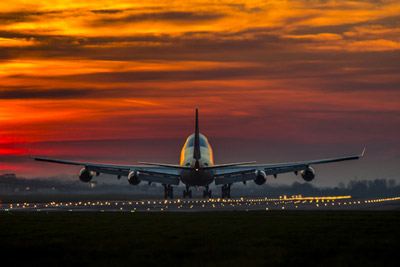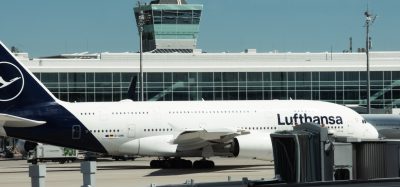ITC report finds environmental challenges should not hinder expansion
- Like
- Digg
- Del
- Tumblr
- VKontakte
- Buffer
- Love This
- Odnoklassniki
- Meneame
- Blogger
- Amazon
- Yahoo Mail
- Gmail
- AOL
- Newsvine
- HackerNews
- Evernote
- MySpace
- Mail.ru
- Viadeo
- Line
- Comments
- Yummly
- SMS
- Viber
- Telegram
- Subscribe
- Skype
- Facebook Messenger
- Kakao
- LiveJournal
- Yammer
- Edgar
- Fintel
- Mix
- Instapaper
- Copy Link
Posted: 7 March 2016 | Katie Sadler, Digital Content Producer, International Airport Review | No comments yet
An Independent Transport Commission (ITC) published report has found concerns around noise and carbon emissions should not stop UK airport expansion.


An Independent Transport Commission (ITC) published report has found concerns around noise and carbon emissions should not stop UK airport expansion.


A report published by the Independent Transport Commission, “The sustainability of UK Aviation: Trends in the mitigation of noise and emissions“, has found ‘concerns around noise, carbon emissions (CO2) and local air quality that arise from aviation operations do not need to be a show-stopper for the UK’s pursuit of airport capacity enhancements at either Gatwick or Heathrow.’
The report by the aviation sustainability experts, Peter Hind and RDC Aviation Ltd, examined a wide range of sources relating to the noise, CO2 and pollutants that arise from British aviation operations.
Technological improvements will mitigate future increases in noise, CO2 and nitrogen oxide emissions
The findings indicate that technological improvements will mitigate any future increases in noise, CO2 and nitrogen oxide (NOx) emissions arising from airport expansion. According to the report, improvements in these areas have been rapid over the past 30 years and the evidence suggests that progress is likely to continue.
On areas of environmental concern the ITC report states:
- Aircraft noise – significant progress has been made in reducing noise, with evidence that advances will continue from a combination of technological and aircraft design improvements as well as alterations to airport operations (e.g. the use of continuous descent approaches and displaced runway thresholds).
- Carbon emissions – are likely to be mitigated by progress in aircraft efficiency (e.g. new technology will drive a 1.6% per year improvement in fuel efficiency) and operations. The research reveals that this is a global issue and cannot be addressed by the UK unilaterally restricting its own connectivity. They also identify that due to the use of larger aircraft, hub operations emit up to 24% fewer carbon emissions than if that same connectivity were provided through point-to-point services; however, the research notes that there is a trade-off because hub operations increase the noise burden on local residents.
- NOx and particulate emissions – the contribution of these pollutants to poor air quality is caused principally by surface transport. The issue transcends the aviation industry and requires separate measures from Government that have been shown to alter land-based travel patterns (e.g. modal shift from car to rail) and reduce the NOx and particulate emissions surrounding an airport.
ITC report: poor air quality is caused principally by surface transport
“Having reviewed these important sustainability issues in-depth, it is clear that the environmental challenges of limiting the carbon emissions, noise and local air quality impacts are not insurmountable”, commented Dr Stephen Hickey, Chair of the ITC’s aviation working group and ITC Commissioner.
He added: “Whether the Government pursues the proposal to expand Gatwick or Heathrow, the ITC research demonstrates that sustainability concerns should not stop the UK realising the great additional benefits that increased connectivity can provide.
“The findings suggest that noise and local air quality impacts can be managed downwards given the right mix of operational, policy and technological development, while incremental improvements in carbon emission output are being delivered on an annual basis. Building public confidence and trust is essential. By arming an independent regulator with powers to monitor and control sensitive issues such as noise, the Government could play its part in delivering improvements for those affected by airport operations once a decision is made.”
“Challenges of limiting the carbon emissions, noise and local air quality impacts are not insurmountable”
In reaction to the report, a Gatwick spokesperson said: “There have been improvements to aircraft technology, but history tells us that the environmental impact of airport expansion should never be underplayed.
“Road pollution in London has long been predicted to fall, but has instead got worse and stopped planned airport expansion in 2009. Vehicle emission scandals continue, Heathrow’s air quality remains illegal and the Government has rightly been forced to look again at the environmental concerns of airport expansion.
“The country cannot be plagued with more years of uncertainty. Gatwick expansion is the only solution that balances the economy and the environment.”
Matt Gorman, Heathrow Director of Sustainability, responded to the report, saying: “Heathrow takes air quality issues seriously. This report adds to the evidence presented by the Airports Commission that road traffic is the main contributor to poor air quality and it is a national problem which needs government action. Heathrow has worked to maintain airport-related traffic broadly static since the 1990’s and is taking action to reduce emissions further by switching to electric vehicles and increasing public transport options for passengers and colleagues. Heathrow has called for local and national partners to work together on a plan to reduce the impact of non-airport related vehicles, which are the major source of local air pollution. The huge benefits of additional capacity at our airport need not come at the expense of the environment – Heathrow expansion can deliver for both.”
The sustainability of UK Aviation: Trends in the mitigation of noise and emissions report can be downloaded here.

















